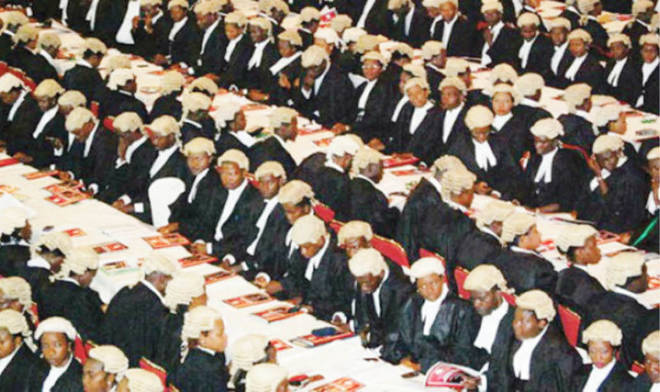Evolution of fashion in legal profession
“The true essence of fashion is being able to reinvent yourself with what you have” – Melanie Fiona On October 15, 1962, at the start of his trial for inciting a stay away and leaving the country without a passport, Nelson Mandela made a dramatic entrance into the South African court room wearing a Thembu […]

“The true essence of fashion is being able to reinvent yourself with what you have” – Melanie Fiona
On October 15, 1962, at the start of his trial for inciting a stay away and leaving the country without a passport, Nelson Mandela made a dramatic entrance into the South African court room wearing a Thembu royal costume of leopard skin and beads, in defiance to the traditional suit and tie of the legal profession. Even though Nelson Mandela was appearing as a counsel representing himself, he chose to appear in an African attire as opposed to conforming to the dress sense of the colonial masters.
Fifty five years later, in another African country, Nigeria, a female law student, Firdaus Abdulsalam, was not permitted by the body of benchers to enter the International Conference Centre for her call to bar on December 12, 2017, for wearing a hijab. She considered her refusal as a spite and violation of her right to freedom of religion as protected by the Nigerian Constitution. This led to a public outcry by the Muslim faithful and litigation before Nigerian courts followed, and then she was subsequently called to the Nigerian Bar.
The dress sense of a people originates from their customs and traditions. For instance, African clothing before the coming of the colonial masters was a combination of local textile, embroidered robes, beaded bracelets and necklace, with the common goal of covering major parts of the body considered private.
The Fulani, who are nomadic, wear long gowns often made of white material, with special hats to protect their skin from the sun. The women wear ornaments and paint with dye to decorate their bodies.
In Yorubaland, only hand-woven clothes (Ibante/patari) were used to cover their private parts, other tribes used leaves, like the Koma people of Adamawa. The Igbo covered their private parts with bead.
Wearing African attire to court may portray the Nigerian courtroom as an African shrine, as opposed to a venue for dispensing justice. However, we can modify our clothing in the legal profession to fit our societal dress sense of today.
A lawyer, Bossan Swanta, said, “A welder learns to wear goggles due to the hazard of the job. As time progresses, he learns to modify the glasses to fit current scenarios.” The same should apply to the legal profession. Nigerian lawyers ought to understand that even though the colonial masters indoctrinated us with a particular fashion sense for the profession, it does not mean it cannot be modified or improved on to fit our modern day life.
I am not saying lawyers should wear agbada, buba, gelle, babban riga, and the likes to court, although some African extremists are of the opinion that it should be so, we can modify our dress sense to avoid the conflicts that cause fashion problems in the country.
In the southern part of Nigeria, a female lawyer wearing a corporate skirt above knee level and looking smart is considered normal and accepted, while in northern Nigeria, such dressing will be considered indecent.
I stand to be corrected, apart from the fact that the British who colonised us and still adorn the wig and gown in their legal system, do not make it compulsory in this time and age. Fashion is an important aspect of human existence. Many trivialise, ignoring that the way we are dressed, necessitates the way we are addressed.
Just as we used to wear leaves before westernisation, and now wear clothes, the same can be done in the legal profession.
There was a time the gown had a purse at the back where clients put legal fees for lawyers. Nowadays, it’s just a design, and lawyers still collect their legal fees. Whether we like it or not, fashion in the legal profession has evolved without our direct participation. So why can’t we be directly involved in the evolution by modifying the dress code of the profession to fit our culture and way of life?
